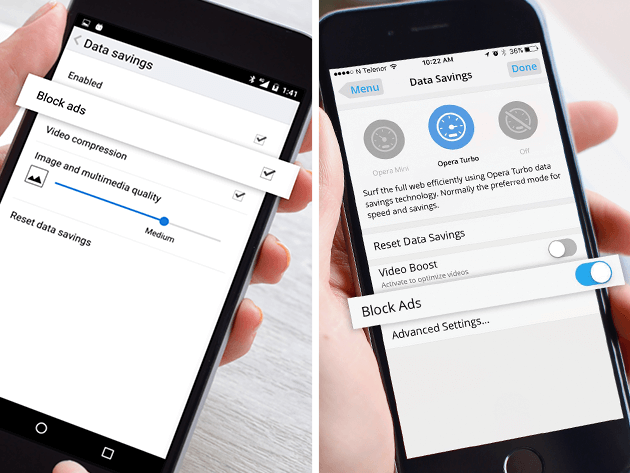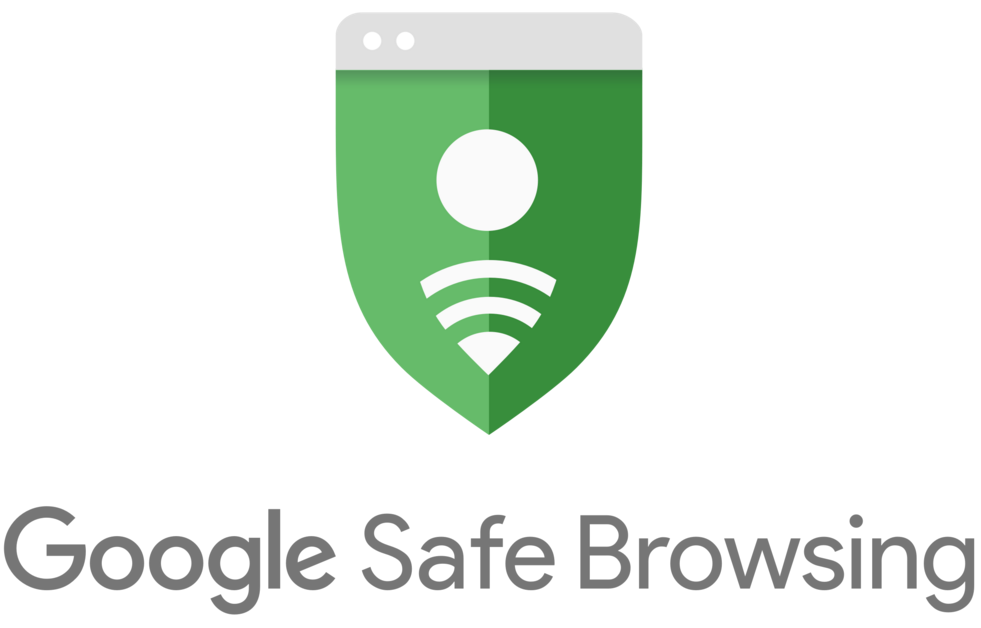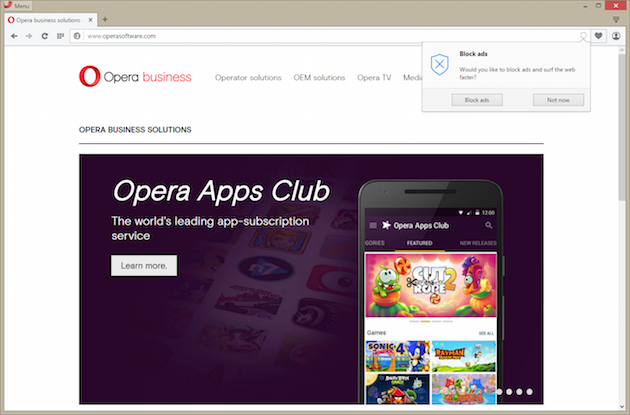
Opera now lets you block ads on Android, iOS and Windows 10 Mobile
Opera Software made a bold move earlier this year when it introduced a native ad-blocker in its desktop Opera browser. While controversial, this feature is not enabled by default though promises to offer some major benefits, like a 40 percent boost in performance compared to an extension like AdBlock Plus.
However, folks are not only saying "No" to advertisements on their PCs but also on their smartphones and tablets. In fact, mobile ad-blocking usage has seen a 90 percent rise year-over-year, with more than 400 million devices said to run an ad-blocker. The latest versions of Opera Mini for iOS and Windows 10 Mobile and Opera for Android now cater to that growing audience too, as they too feature a built-in ad-blocker.

4 web designing factors that weigh your website's trustworthiness
Trustworthiness is one of the factors that play a huge role in converting your leads. Would you like to make a transaction with a shabby looking website? Would you trust any random xyz website over World Wide Web? Definitely not! And you should not too, in order to stay safe and secure.
So what exactly determines a website’s trustworthiness? How do customers get that feeling of authenticity and reliability for a website? Well, we do have the answers to these questions.

Major websites are vulnerable to advanced bots
Pretty much every top website, in retail, financial services, consumer services, OTA members (Online Trust Alliance), news and media, and top US government agencies, is vulnerable to advanced bots, new research says.
Bot detection and mitigation company Distil Networks, analyzed 1,000 top websites in these verticals, and how they behave against crude, simple, evasive and advanced bots. All of the verticals performed quite well against crude bots, (75 percent in consumer services, 70 percent in government, 65 percent in financial services, 64 percent in news and media, 78 percent in retail and 67 percent in OTA members), but when it comes to advanced bots, one percent is the best result found.

Responsive websites trump mobile apps
GovInsider recently did an interview with Ben Terrett, the former head of design at the UK Government Digital Service (GDS), about the GDS’s success in the digital realm. The two discussed mobile apps, why websites are better, and what needed to be done in order to have a successful digital project.
Terrett said the problem with mobile apps is that they are a huge undertaking -- not only is it expensive to make an app (or multiple apps, or an app ecosystem) but also to support it and update it following various software changes.

Google launches Safe Browsing API version 4
The world wide web used to be like the wild west (and still sort of is). Visiting the wrong site would often mean an infection with malware or other nastiness, such as getting taken by scams. While that can still happen today, web surfers are much more protected. Some security suites don't only scan for and remove viruses on your hard drive, but prevent the download entirely. Not to mention, users are often better trained to recognize a scam.
Unfortunately, no web browser or security software package is infallible -- nor is any user. Thankfully, Google is working around the clock to keep the world protected. Its Safe Browsing API is available to developers, allowing software -- such as Chrome -- to warn a user before they visit a dangerous site. Today, the search giant launches the fourth version of the API.

Google Chrome now more popular than Internet Explorer, says NetMarketShare
Google Chrome has just passed Internet Explorer to become the most popular desktop web browser, according to web analytics company NetMarketShare. Based on the latest figures, the former has 41.71 percent usage share as opposed to 41.33 percent for Microsoft's longstanding PC browser.
NetMarketShare is the last major web analytics company to crown Google Chrome as the most popular desktop web browser. Other players in this field have it pegged as the leader with an even more comfortable lead over Internet Explorer.

More apps and websites leak credit card data on enterprise handsets
In its latest quarterly Mobile Data Report, Wandera has revealed a significant rise in apps leaking credit card data on enterprise mobile devices.
The company, which specializes in mobile data security and management, compiled the report by analyzing the data usage trends and traffic patterns across its global network of enterprise mobile devices. Between Q4 2015 and Q1 2016, there has been a 17 percent increase in apps and mobile websites leaking credit card data.

Google no longer lists its own site as 'partially dangerous'
According to Google’s online transparency report, Google.com had been considered a "partially dangerous" website.
In the report under the Safe Browsing section, the company listed its own website as one that could be dangerous to its visitors followed by a list of site safety details along with testing details.

Stop using shortened URLs to share private content
Generating a shortened URL to share content may seem like a good idea, but it may also expose you to unnecessary security risks, a new research paper shows. Titled Gone in Six Characters: Short URLs Considered Harmful for Cloud Services, it explains how short URLs can be used by malicious players to plant malware, copy personal files, and retrieve all sorts of personal information, like your home address, among other things.
URL shorteners, as their name suggest, are meant to bring long links, that can contain dozens of characters, usually down to just a few letters and numbers. That has some clear benefits: shortened URLs suit SMS messages and tweets better, look nicer in conversations, and allow services to track the number of clicks for a specific link, among other things. But the fact that they only contain a handful of characters makes them susceptible to brute-force search.

Brief WordPress database guide for the absolute beginner
WordPress is the finest content management system. Its popularity is proof of that. Websites on WordPress perform great and the platform is easy to use. However, the same cannot be said about managing its database.
If you are a beginner in using this CMS then you might get a migraine or two whenever you try to understand the tons of content available online concerning WordPress databases.

Best practices for securing your website
The web seems like a dangerous place lately, doesn’t it? We’re constantly hearing about some new piece of malware, or a website that was hacked and defaced, or a new vulnerability in what was once thought to be a secure protocol. I wouldn’t blame you for being paranoid -- after all, to hear the media tell it, your site’s under attack by criminals and ne’erdowells from all sides.
Here’s the thing -- if you’ve taken all the necessary steps to keep your site safe, you actually don’t have a whole lot to worry about. And that’s where we come in. Today, we’re going to talk about some best practices for securing your site, and protecting it against everything from infected clients to ignorant users. Let’s get started.

French media goes on the offense against ad-blockers
French media is bringing the fight to ad blocking software. According to a report by The Guardian, a number of local outlets are preventing readers who run ad-blockers from accessing their content.
The sites, some of which are major media publications, are part of a trade association representing online businesses. They’re saying that by using ad blocking software, users are depriving the companies of valuable revenue sources, killing the business.

Adding a payment feature to your website can improve cash flow
Whether you have a big or small business, targeting the online audience is one of the best decisions you will ever make. There are billions of people using the internet everyday, with thousands or millions of these people matching your target demographic. Ecommerce has seen the rise of many enterprises, some of which operate exclusively online.
One of the most important parts about running an online business is having a great website design. You website design is what people online perceive about your business and this is why you need to invest in professional website design and development. You may have a cousin or a friend who is good at coding, but there is a lot more that goes into an ecommerce website development.

Symantec introduces website encryption service
Symantec today announced the global release of a new product which will help companies encrypt user data on their websites.
The new product is called Encryption Everywhere, and it will be offered through hosting providers. According to a press release following the announcement, there will be a couple of levels of encryption and general protection the new service will offer, but Symantec would love to see every "legitimate" website in the world have at least the basic level of encryption by 2018.

Opera's desktop browser adds a built-in ad-blocker
A growing number of major players in the tech industry are now in support for blocking ads. Apple offers this kind of feature in Safari on iOS, ASUS bundles AdBlock Plus on its mobile devices, while Three, a major UK carrier, blocks ads at the network level. And, as of today, Opera Software is also a member of this group.
Opera Software just announced that its desktop browser -- which is available on Windows, OS X and Linux -- will come with a built-in ad-blocker, which is a first for a major browser. The feature can be tested now in the Developer channel version of Opera and, once it is deemed ready for prime time, it will make its way to the public version of the browser.
